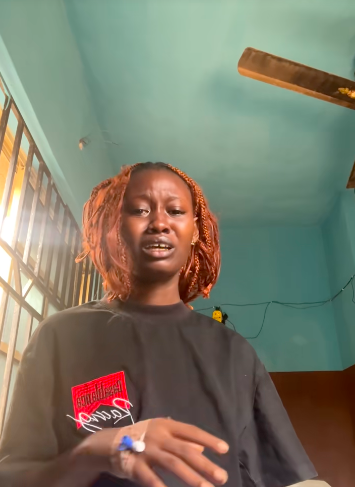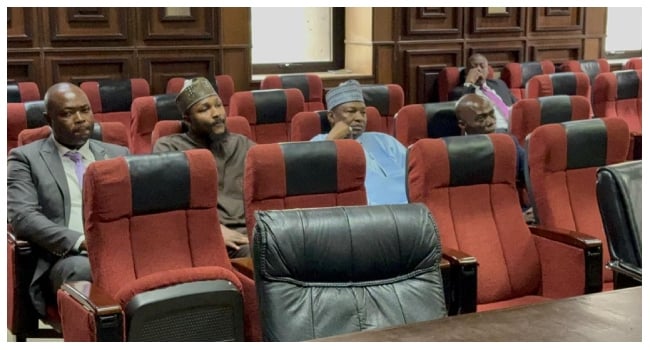• Excessive charges eroding trust in financial system –Experts
• Report infractions to us –CBN
By Chinwendu Obienyi
While banks in Nigeria declare humongous profits and race to beat the recapitalisation deadline, low-income depositors on the other hand feel plagued by peppery and duplicitous charges.
According to them, banks operate like relentless predators, chipping away at savings through a myriad of charges, duplicitous SMS alerts, card maintenance fees, transfer levies, stamp duty; each one a silent strike at already meagre balances, even when no transactions were made.
For millions, these recurring deductions deepen the cycle of poverty, eroding hope as their naira is siphoned away to fatten profit margins.
Bank executives in gleaming boardrooms toast record-breaking quarterly earnings, while the very customers funding the success are left with dwindling balances and growing despair.
The contrast is as stark as it is painful: complaints echo outside, while celebrations ring inside.
These complaints, experts warn, are not isolated, and could lead to an erosion of trust in the formal banking system, a risk that threatens to derail Nigeria’s financial inclusion targets.
This has prompted calls for regulatory action and putting pressure on the Central Bank of Nigeria (CBN) to come down harder on culprit banks, other than coming up with stricter policy guidelines.
The apex bank on the other hand has repeatedly urged depositors who feel violated to promptly report to its consumer protection department through emails and verified social media handles for immediate rectification.
Speaking to Daily Sun, a security operative with an Oil firm in Lagos, Uloma Onuoha, increasingly frustrated by the wave of bank charges, described the situation as arbitrary, excessive, and unexplained.
She said, “My employer pays me about N50,000 as my monthly salary but all of a sudden, N3,000-N4,000 just disappears due to bank charges. How can one survive in this country? There is no form of apology, it is just a message stating that you are charged for card maintenance among others”.
Also expressing her disappointment, a restaurant owner known as Mama Wisdom, said, “Food prices are on the high side and still on top of that, banks just debit our accounts unnecessarily. When you go to the banks to complain, they will apologise and then sometimes, the money is returned to your account after days, sometimes, it does not return at all”.
According to a report by Finance in Africa, five of the biggest banks in Nigeria raked in $748.2 million (about N1.2 trillion) in net fees and commissions in 2024, marking an 82 per cent jump from $412.1 million reported in 2023. The report further added that the charges covered a range of services offered by the banks such as credit-related fees such as advisory, penal and commitment fees; account maintenance fees; card maintenance charges; and commissions on foreign currency transactions.
As at Q1 2025, banks collectively earned approximately around N643.9 billion from charges categorised as fees and commissions, which includes N165.3 billion from e‑banking-related charges.
A 2023 survey by Enhancing Financial Innovation and Access (EFInA) shows that 38 million Nigerian adults remain unbanked, and among those within the system, over 40 per cent say they lack confidence in their banks due to unexplained deductions. This has led to financial analysts stating that the consequences of these persistent charges go beyond personal inconvenience.
Financial economist and Head of Research at FSL Securities, Chiazor Victor, said, “We are not just talking about fees here. This is a credibility issue. People are being systematically disincentivised from using banks. This is dangerous for a country that is pushing digital payments and economic formalisation. Banking cannot be sustained on a model that feels extractive. Transparency, accountability, and responsiveness must return to the center of service delivery.”
Corroborating, Senior Partner, SPM Professional, Paul Alaje, described the situation as “silent confidence crisis”.
He said: “If we continue on this path, the unbanked population will grow. People are reverting to cash, informal cooperatives and fintech wallets not because of technology, but because they feel exploited by banks”.
In response to the growing outcry, the Central Bank of Nigeria (CBN) has reiterated its commitment to consumer protection. Through public notices and its website, as well as Monetary Policy Committee (MPC) meetings, the apex bank has encouraged customers to report unexplained or suspicious deductions via email and phone hotlines.
“We urge Nigerians to escalate complaints using the proper channels. All banks are subject to the 2020 revised guide on charges and must provide transparent statements”, CBN Governor, Olayemi Cardoso stated.
Yet, critics argue that complaint resolution has been slow and ineffective. Internal CBN data obtained by Daily Sun, showed that between 2022 and 2024, over 13,000 complaints were lodged against commercial banks with less than 8 per cent resolved conclusively.
Speaking further, Alaje called on the Senate Committee on banking to scrutinise commercial bank charges. “I think it is high time to move beyond vague regulations and enforce compliance transparently. The Senate Committee on Banking should demand reports from both banks and the CBN”, he stated.
He also recommended that bank customers receive real-time alerts detailing the exact reason for every charge, as seen in other financial systems. “You should not lose N1,000 and not know why.”
As more Nigerians question the value of keeping their money in banks, the very foundation of formal finance is being tested. While the CBN insists mechanisms are in place to address abuse, public sentiment suggests otherwise.
Until depositors feel that the system is working for them not against them the bleeding may continue.

















Leave a comment